‘Head down, arse up’: How Toowoomba’s Clive Berghofer went from rags to Officer of the order of Australia
There are three things Darling Downs philanthropist and millionaire Clive Berghofer says you need to get ahead in life, as he reflects on his journey from relying on rations to being an Officer of the order of Australia.
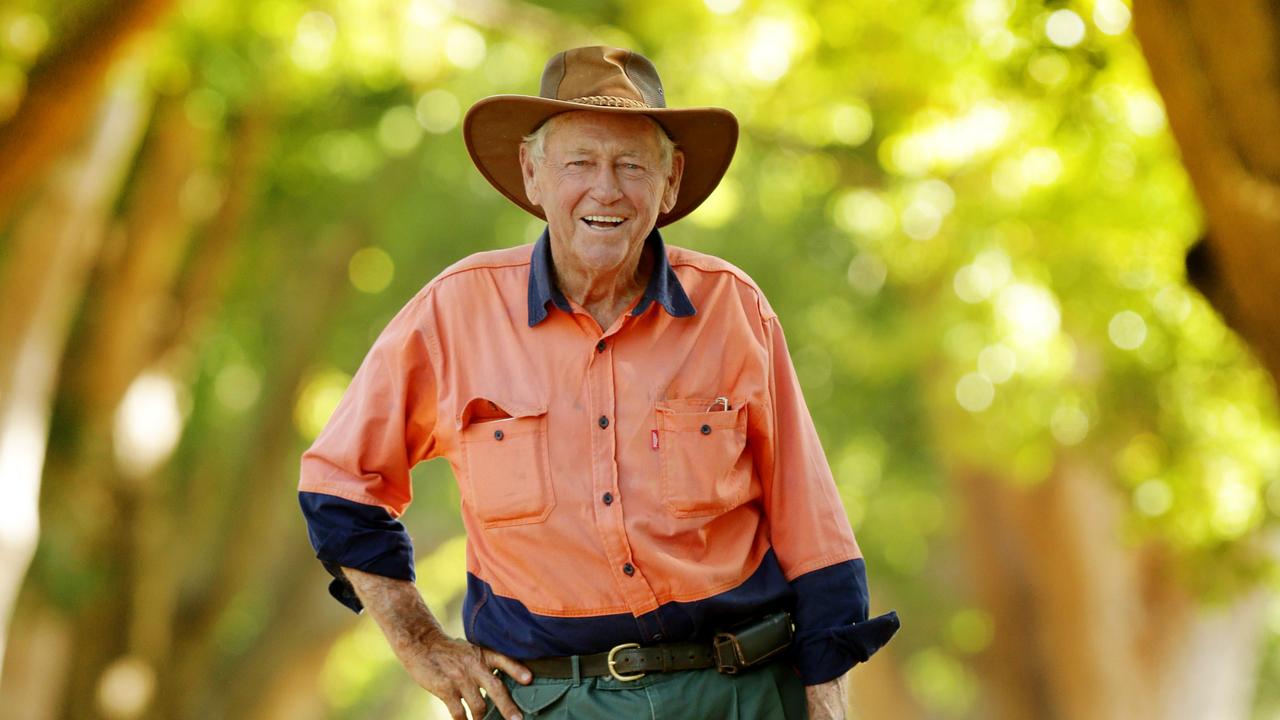
News
Don't miss out on the headlines from News. Followed categories will be added to My News.
One of regional Queensland’s last living legends, a bush larrikin born in a time of war who went on to build a multimillion-dollar empire from the ground up off the back of a fair-go and hard work, is now an Officer of the order of Australia.
The 90-year-old Darling Downs philanthropist, Clive John Berghofer, added the distinguished feather to his Akubra in June 2025, as part of the King’s Birthday honours list.
The former mayor, member of parliament, and semi-retired property developer was one of 31 Australians honoured with the AO this year, which recognises Australians for their distinguished service to the nation or humanity at large.
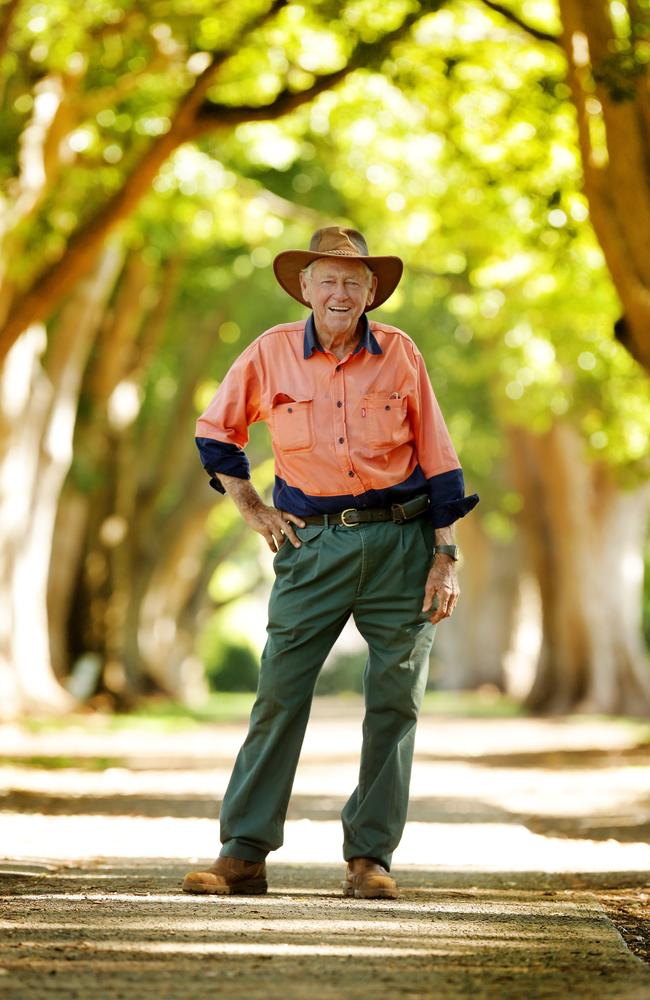
Mr Berghofer has donated more than $140m to charities and Toowoomba region organisations, focusing on health, education, and sport.
“I’ve made my money out of Toowoomba, I’m going to put it back into Toowoomba, so I’ve tried to do things that help our region,” he said.
Having been honoured with an AM and OAM in the past, Mr Berghofer said he was shocked to hear someone had nominated him for an AO.
“It’s quite an honour,” he said.
“I never thought I would have gotten anywhere near where I’ve gotten (in life).”
Mr Berghofer jested he had “done all right” for a kid who was terrible at reading, writing, and spelling, leaving school at age 13.
“I went to a one teacher school at Wellcamp where we had 19 kids in the whole school,” he said.
“I always said I came fourth in my class – that sounded better than coming bottom because there were only four of us in the class.
“And I went to ‘high school’ because (the building) was up on high stumps.
“But I told myself I’ve got to work harder than anybody else to achieve what I’ve achieved.”
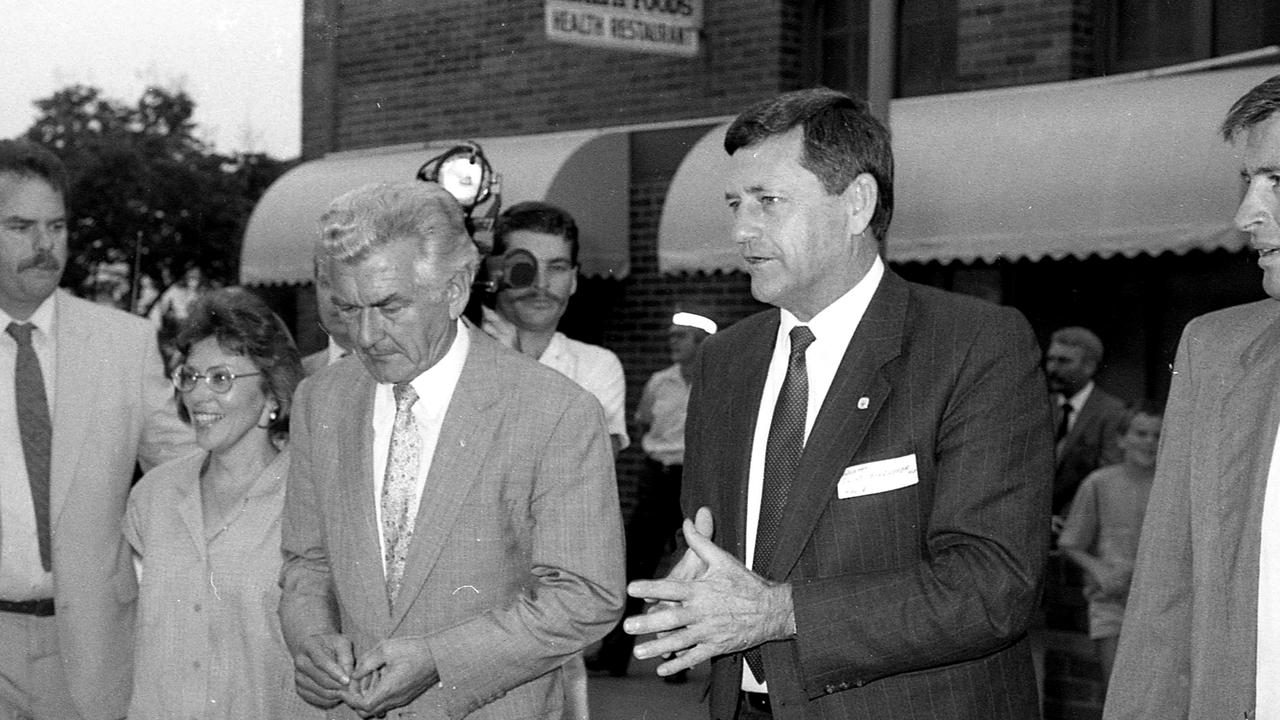
Growing up on a farm at Wellcamp during World War II, with no power and relying on ration tickets for household staples, and at 13 he was working 44-hour weeks at a sawmill for 3 pounds ($6) a week.
“I was pretty hard living,” he said.
“But I wanted to work harder than anybody else, and I’ve always had big ideas … but I never would have thought I would have achieved what I have achieved here.
“I never thought I would have gotten anywhere near where I’ve got.
“I’ve made it this far by working hard and with a bit of common sense.”
He credited his father for his drive and work ethic, and said the three things one needed to get in life was hard work, honesty, and getting the job done right.
“I was fortunate, probably that my father grew up in the depression … he kicked my backside and taught me how to work, how to do the job properly, and how to be honest,” he said.
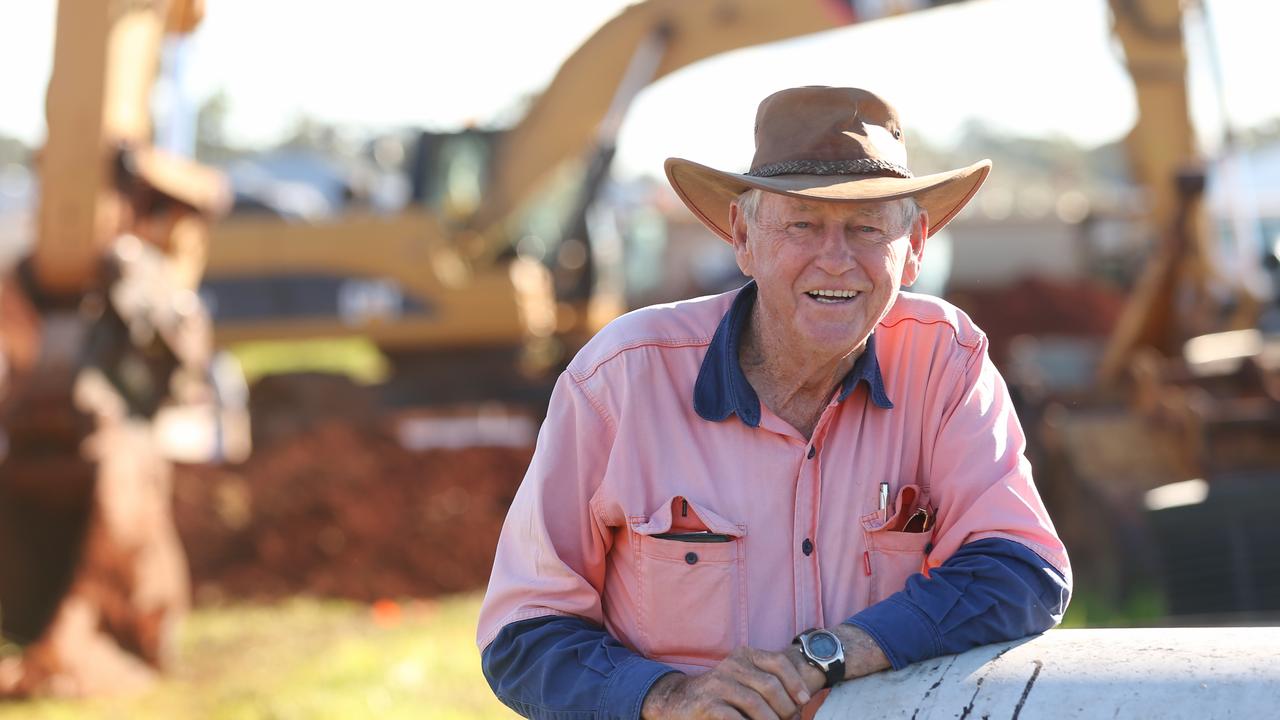
“And those are three pretty important things in life, and we’re missing out on a lot of those things today.
“I had a young bloke that I’ve done a bit for, he asked me how to get there, I said ‘put your head down, your arse up, and get into it’.
“(And) if you want something out of someone, you don’t kick them in the shin first.”
He said throughout his career he’s never made a promise he couldn’t keep, and only slept three hours a night to get the job done cheaper and quicker than anyone else.
“At one stage I was a mayor, a member of parliament, I ran the Wilsonton Hotel which sold four times more liquor than any hotel in Australia and ran all my constructions and never missed a (council) meeting, was never late to a meeting, and people knew they could trust my word,” he said.
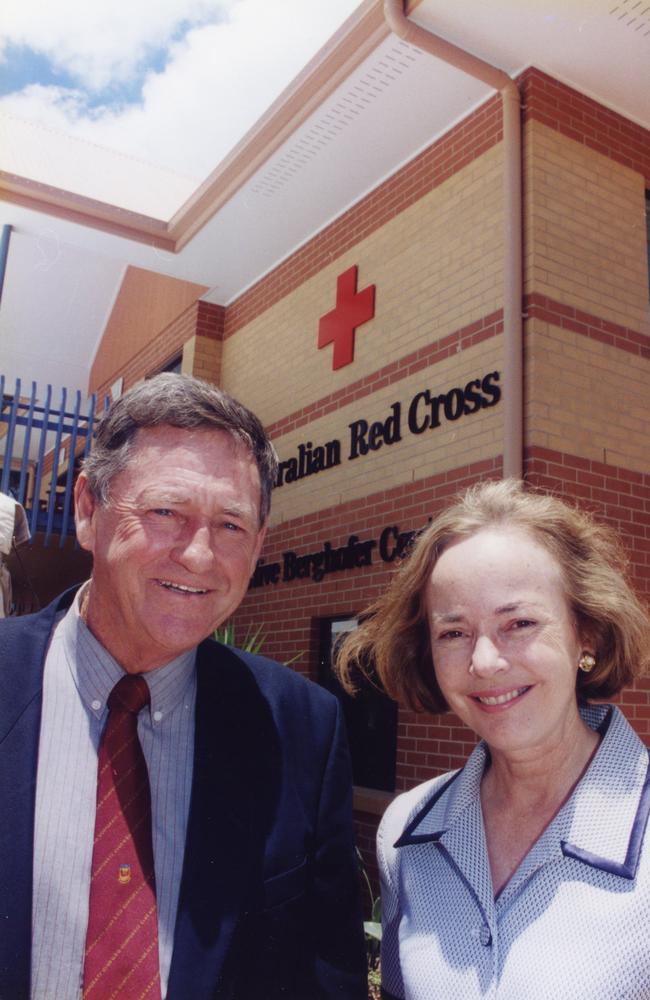
“When I was building, I used to do all my designing and ordering of a night time and worked from daylight to dark on the sites.
“I’m just an ordinary person. I might be wealthy, but I can talk to you or anybody, and I don’t discriminate.
“I’ve achieved all these things by treating people with respect.”
Mr Berghofer said he hoped the millions of dollars he provided to fund medical research and build facilities in the region, would help everyone in the community, especially those who didn’t like him, live a healthier, longer and able life.








